 The time for the great summer records has arrived, and Meow Meow havecrafted one hell of a good time in their debut, though it may not seemlike it at first. One glance at the album artwork with exploding flowerhead, or at the tracklisting with titles like "The Killing Kind" and"Sick Fixation," may not reveal this; but both belie the music foundinside, even if they correctly reflect the lyrical content. Clearlythis band loves melodies and musical trickery — with burbling andstatic sounds surrounding the opening song on the album — and there's afirm country influence that's even more evident when the pedal steelcomes in. But all those pieces together do not ensure that the bandknows how to wield them and shape them into their bidding. Time andtime again on their debut, Meow Meow had me checking websites anddiscography sites asking "This is their debut?"Kirk Hellie and Christopher O'Brien are deft in their songwritingabilities, and their influences in '90s noise pop and '60s beach rockmay be obvious but they still manage to make some toes tap and somesmiles pour in with an originality all their own. These songs areinfused with sunshine and upbeat rhythms but still have some darkimagery poured all over them. There's laments about fucking it all upto open the record on "Cracked," then talk of killing off the cool kid,then talk of leaving people for dead, and on and on about depressingand deplorable subjects, while still maintaining enough of a party rocksound to forget about it all while listening. The noise continuesthroughout the record, with distorted guitar, static, and fuzz effectsdominating the mix on most every song. This is the most infectiousmusic I've heard this year, though, and despite the lyrics venturingfar into the morbid and disturbing, I was in a good mood from beginningto end.
The time for the great summer records has arrived, and Meow Meow havecrafted one hell of a good time in their debut, though it may not seemlike it at first. One glance at the album artwork with exploding flowerhead, or at the tracklisting with titles like "The Killing Kind" and"Sick Fixation," may not reveal this; but both belie the music foundinside, even if they correctly reflect the lyrical content. Clearlythis band loves melodies and musical trickery — with burbling andstatic sounds surrounding the opening song on the album — and there's afirm country influence that's even more evident when the pedal steelcomes in. But all those pieces together do not ensure that the bandknows how to wield them and shape them into their bidding. Time andtime again on their debut, Meow Meow had me checking websites anddiscography sites asking "This is their debut?"Kirk Hellie and Christopher O'Brien are deft in their songwritingabilities, and their influences in '90s noise pop and '60s beach rockmay be obvious but they still manage to make some toes tap and somesmiles pour in with an originality all their own. These songs areinfused with sunshine and upbeat rhythms but still have some darkimagery poured all over them. There's laments about fucking it all upto open the record on "Cracked," then talk of killing off the cool kid,then talk of leaving people for dead, and on and on about depressingand deplorable subjects, while still maintaining enough of a party rocksound to forget about it all while listening. The noise continuesthroughout the record, with distorted guitar, static, and fuzz effectsdominating the mix on most every song. This is the most infectiousmusic I've heard this year, though, and despite the lyrics venturingfar into the morbid and disturbing, I was in a good mood from beginningto end.samples:



 Ineffable and at the limits of experience, the sounds inside thisgorgeous little package break experiential limits. Though the imageryin the booklet suggests a cold and drifting place, I imagine the musicto be more akin to viewing the sun from only a few thousand miles away.Rosy Parlane's rich and vibrant pulses eminate and exude away from acenter boiling over with the unspeakable. Divided into three pieces, Iris sounds like the universal Omhissing in through subjective ears, playing with the phenomenology ofexperience, and coming to rest in the form of a vision: perhaps acertain place or a certain time will flash back from memory one listenand, on another, my mind will simply blank and release itself fromtroubles and worries. The bulk of the music isn't all zen-likemeditations on existence, though. "Part 2" hums and modulates away overthe organic sounds of glass, chains, and textured friction washing byin an organized concerto for metal surfaces and brooms. "Part 1" rollsalong slowly, almost like a lullaby, until the processed sound of whitenoise begins raining down over the calm. Raining is a completely aptdescription; Parlane manages to create a digital rainfall out of bitsof white noise that, while going to sleep, had me wanting to get up andcheck if clouds were rolling in. Iris naturally moves into themelodic at times; layers upon layers of sound will suddenly match up inperfect sequence to create moments of strange beauty. The layers driftby eachother eventually and return to the unknown, but these briefforays into familiar territory are welcome when they happen and neverbreak the trance of the drones create. "Part 3" is perhaps the moststunning of the three pieces and the most carefully constructured. Therhythmic popping and snapping mix perfectly with the organ flowspassing above and beneath them. Strangely enough, this last track wasan exotic and ominous soundstrack to a drive into the city - the musiccan be heard a thousand different ways and different people I've playedthis for have described entirely different visuals. The end of therecord runs away like the sound of a projector at the end of the filmroll - it's a movie where everyone sees something different and wherethe images stay unbroken in the mind for days to come.
Ineffable and at the limits of experience, the sounds inside thisgorgeous little package break experiential limits. Though the imageryin the booklet suggests a cold and drifting place, I imagine the musicto be more akin to viewing the sun from only a few thousand miles away.Rosy Parlane's rich and vibrant pulses eminate and exude away from acenter boiling over with the unspeakable. Divided into three pieces, Iris sounds like the universal Omhissing in through subjective ears, playing with the phenomenology ofexperience, and coming to rest in the form of a vision: perhaps acertain place or a certain time will flash back from memory one listenand, on another, my mind will simply blank and release itself fromtroubles and worries. The bulk of the music isn't all zen-likemeditations on existence, though. "Part 2" hums and modulates away overthe organic sounds of glass, chains, and textured friction washing byin an organized concerto for metal surfaces and brooms. "Part 1" rollsalong slowly, almost like a lullaby, until the processed sound of whitenoise begins raining down over the calm. Raining is a completely aptdescription; Parlane manages to create a digital rainfall out of bitsof white noise that, while going to sleep, had me wanting to get up andcheck if clouds were rolling in. Iris naturally moves into themelodic at times; layers upon layers of sound will suddenly match up inperfect sequence to create moments of strange beauty. The layers driftby eachother eventually and return to the unknown, but these briefforays into familiar territory are welcome when they happen and neverbreak the trance of the drones create. "Part 3" is perhaps the moststunning of the three pieces and the most carefully constructured. Therhythmic popping and snapping mix perfectly with the organ flowspassing above and beneath them. Strangely enough, this last track wasan exotic and ominous soundstrack to a drive into the city - the musiccan be heard a thousand different ways and different people I've playedthis for have described entirely different visuals. The end of therecord runs away like the sound of a projector at the end of the filmroll - it's a movie where everyone sees something different and wherethe images stay unbroken in the mind for days to come.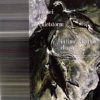 Every once in a while, a DJ set comes off so well that it's actually worth releasing as an album, and the original In Time, Like Thiswas a pretty good trawl through a crate of head-nodding hip-hophistory. Four years on, the DJs responsible for it have released asequel that broadens its sights a bit, and it suffers for the lack offocus. For one thing, the "four turntables, two mixers, and nothingelse" credo of the original is gone: the Doctor Who sound effects thatcovered up quick transitions in the original have been replaced withdubby echoes and digital delays, and that unfortunately open up thedoor for sometimes-house-DJ Kensei to dump the tired sounds of hisother job into the mix. It would be hypocritical to knock the duo forblending genres on a music-geek site, and the racks of any DJ shop willtell you that plenty of clubs are only too happy to get some peanutbutter in their chocolate, but the lame-dance-club stink of house istoo strong a reminder of hip-hop's more embarrassing "shake your assand damn The Message" tendencies to ignore altogether. When they startplaying records even a bit outside of the usual club fodder, though,the results improve: Deep Purple getting rear-ended by a conga beat anda rocky drum kit while some zippy high-pitched scratching goes on isworth hearing, and it only gets better when some Yello/Art of Noise-ishloops and shards of Missy Elliott worm their way into the proceedings.Unfortunately, the good stuff only goes on for a couple of minutes at atime, and it's almost always dragged to a halt by invitations to waveyour beer in the air; the fact that In Time 2 is acompetently-mastered room recording, or perhaps badly-masteredsoundboard output mixed with one, even lets you hear the audience doingjust that. I'm not sure what the rationale for the crowd noise is, butit really only reminds you that you're not at the Liquid Room and/ordrunk enough to really get caught up in the moment and just enjoythings. For 2000 yen, it's a lot cheaper than going to the show wouldhave been, but that really just softens the edge of the disappointment.
Every once in a while, a DJ set comes off so well that it's actually worth releasing as an album, and the original In Time, Like Thiswas a pretty good trawl through a crate of head-nodding hip-hophistory. Four years on, the DJs responsible for it have released asequel that broadens its sights a bit, and it suffers for the lack offocus. For one thing, the "four turntables, two mixers, and nothingelse" credo of the original is gone: the Doctor Who sound effects thatcovered up quick transitions in the original have been replaced withdubby echoes and digital delays, and that unfortunately open up thedoor for sometimes-house-DJ Kensei to dump the tired sounds of hisother job into the mix. It would be hypocritical to knock the duo forblending genres on a music-geek site, and the racks of any DJ shop willtell you that plenty of clubs are only too happy to get some peanutbutter in their chocolate, but the lame-dance-club stink of house istoo strong a reminder of hip-hop's more embarrassing "shake your assand damn The Message" tendencies to ignore altogether. When they startplaying records even a bit outside of the usual club fodder, though,the results improve: Deep Purple getting rear-ended by a conga beat anda rocky drum kit while some zippy high-pitched scratching goes on isworth hearing, and it only gets better when some Yello/Art of Noise-ishloops and shards of Missy Elliott worm their way into the proceedings.Unfortunately, the good stuff only goes on for a couple of minutes at atime, and it's almost always dragged to a halt by invitations to waveyour beer in the air; the fact that In Time 2 is acompetently-mastered room recording, or perhaps badly-masteredsoundboard output mixed with one, even lets you hear the audience doingjust that. I'm not sure what the rationale for the crowd noise is, butit really only reminds you that you're not at the Liquid Room and/ordrunk enough to really get caught up in the moment and just enjoythings. For 2000 yen, it's a lot cheaper than going to the show wouldhave been, but that really just softens the edge of the disappointment.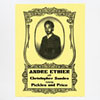 Don't let it turn your brown eyes blue, and don't let them turn yourblues beige. Andre Ethier takes a break from his day job with theDeadly Snakes to take a stab at a record whose components could befound strewn across dozens of other releases. This is no cut-and-pastepastiche work of interpolations, but rather a slab of traditional(read: tired) old blues motions compiled into original works. Ethierindulges in an brusque exploration of the blue-eyed blues (though Iadmit not knowing what color his eyes are, really), strumming anacoustic guitar along the same world-weary twelve bars that musicianshave been walking for decades, with or without the benefits of a bassline. It's difficult to hear the performer through his influences, withthe arraignments paying a slavish tribute to the core of most songsreleased before 1970 and Ethier's Dylanesque phrasing leaving verylittle room for interpretation. "Little Saddy" is a notable offender,with the regrettable formula of repeating the first line of the versetwice before reaching a new thought. A standard blues move if thereever was one, though such moves only work when that line isparticularly sharp, or delivered with some kind of intense conviction.Unfortunately, when the Dylan recedes, the listener is left with onlyEthier, sounding completely hollow and flat. On "The Hanging Man,"Ethier asks his band mates for a big finish just before the final bars,and the response is an abrupt thud that makes for a curiously anemicclose. Without a doubt, there are elements of this record that willappeal to some. There are the lingering glimmers of Ethier's influencesthat haunt every song, and the purist trappings of the fully acousticsetup and live to tape recording process. The former, however amusingthe familiar sounds might be, does not make for a compelling record,only a catalog of weak versions of other people's hooks, meticulouslystraightened out and made dull. That it was recorded live to tape ispart badge and part excuse, providing a raw and unfettered version ofEthier and company's performance together—a claim that the neat andtidy recording does not back up. The ensemble is extremely reserved,daring not to wander out of the linear structures of their songs. Idon't mean to say that they should have devolved their trad-blues intosome kind of psychedelic freak out, but that their homage is far toopristine and clinical to ever capitalize on the crackling,devil-may-care lineage they seek to identify their music with.
Don't let it turn your brown eyes blue, and don't let them turn yourblues beige. Andre Ethier takes a break from his day job with theDeadly Snakes to take a stab at a record whose components could befound strewn across dozens of other releases. This is no cut-and-pastepastiche work of interpolations, but rather a slab of traditional(read: tired) old blues motions compiled into original works. Ethierindulges in an brusque exploration of the blue-eyed blues (though Iadmit not knowing what color his eyes are, really), strumming anacoustic guitar along the same world-weary twelve bars that musicianshave been walking for decades, with or without the benefits of a bassline. It's difficult to hear the performer through his influences, withthe arraignments paying a slavish tribute to the core of most songsreleased before 1970 and Ethier's Dylanesque phrasing leaving verylittle room for interpretation. "Little Saddy" is a notable offender,with the regrettable formula of repeating the first line of the versetwice before reaching a new thought. A standard blues move if thereever was one, though such moves only work when that line isparticularly sharp, or delivered with some kind of intense conviction.Unfortunately, when the Dylan recedes, the listener is left with onlyEthier, sounding completely hollow and flat. On "The Hanging Man,"Ethier asks his band mates for a big finish just before the final bars,and the response is an abrupt thud that makes for a curiously anemicclose. Without a doubt, there are elements of this record that willappeal to some. There are the lingering glimmers of Ethier's influencesthat haunt every song, and the purist trappings of the fully acousticsetup and live to tape recording process. The former, however amusingthe familiar sounds might be, does not make for a compelling record,only a catalog of weak versions of other people's hooks, meticulouslystraightened out and made dull. That it was recorded live to tape ispart badge and part excuse, providing a raw and unfettered version ofEthier and company's performance together—a claim that the neat andtidy recording does not back up. The ensemble is extremely reserved,daring not to wander out of the linear structures of their songs. Idon't mean to say that they should have devolved their trad-blues intosome kind of psychedelic freak out, but that their homage is far toopristine and clinical to ever capitalize on the crackling,devil-may-care lineage they seek to identify their music with.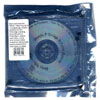 This dismal new offering by Genesis P-Orridge was made in collaborationwith a well-known producer, who prefers to go under the assumed name ofAstrid Monroe for this release, presumably out of sheer embarrassmentat the outcome. I'm certain that I'm not alone in having beenunderwhelmed by most of Genesis' recent musical work, most especially1999's Thee Majesty, P-Orridge's vanity "spoken word" album of apoetic,repetitive blather that featured the painfully dull ambient soundsettings of the talentless Bryin Dall. "When I was young, there weretwo reasons for me to look in a mirror," Genesis intoned on TheeMajesty's debut Time's Up,"The first reason was to see if my parting was straight. The secondreason was to see if my tie was straight. Now I'm older, and there's athird reason." Apparently, this sort of thing passes for profundityover at the P-Orridge household, and perhaps among a small legion ofTOPY holdovers, but for those who are not altogether convinced thatGenesis is a transsexual alien prophet-shaman-guru whose everyutterance must be the very voice of God, it can't help but seem alittle trite. It should come as no surprise my abject disappointmentwhen I discovered that When I Was Young is nothing but a rehash of the same non-revelatory prattle that populated Time's Up.Filtering out the minimal, dark-ambient backing tracks from theoriginal material, Astrid Monroe reuses Genesis' vocal tracks, addingheavy distortion and vocoder effects, placing them in new settings oflaughably swanky, nocturnal trip-hop outmoded by at least a decade.It's hard to say who exactly the real Astrid Monroe might be, butjudging from the dubby, overproduced atmospherics and syrupy strings,I'd place him or her squarely in the Massive Attack camp. Sci-fitheremin and ring-modulation effects are used to contribute to adruggy, night-clubby atmosphere, which sounds frankly ludicrousaccompanying P-Orridge's space-cadet proselytizing. It should be notedthat Genesis P-Orridge is a great artist and a massively importantcounter-cultural figure who has been at the vanguard of art, music andculture for thirty years. Even now, with his transgender surgicalmutations and his recent resurrection and transmutation of PTV andThrobbing Gristle, he is proving that he is still a vital and relevantfigure. Many complained when Psychic TV began experimenting with acidhouse back in their mid-80's Infinite Beat phase, but inGenesis' defense, it hadn't yet become a hopeless clich?, and PTV wereable to innovate and expand the definitions of the genre, influencing ageneration of producers. Unfortunately, When I Was Young comes more than 12 years too late to be even slightly relevant.
This dismal new offering by Genesis P-Orridge was made in collaborationwith a well-known producer, who prefers to go under the assumed name ofAstrid Monroe for this release, presumably out of sheer embarrassmentat the outcome. I'm certain that I'm not alone in having beenunderwhelmed by most of Genesis' recent musical work, most especially1999's Thee Majesty, P-Orridge's vanity "spoken word" album of apoetic,repetitive blather that featured the painfully dull ambient soundsettings of the talentless Bryin Dall. "When I was young, there weretwo reasons for me to look in a mirror," Genesis intoned on TheeMajesty's debut Time's Up,"The first reason was to see if my parting was straight. The secondreason was to see if my tie was straight. Now I'm older, and there's athird reason." Apparently, this sort of thing passes for profundityover at the P-Orridge household, and perhaps among a small legion ofTOPY holdovers, but for those who are not altogether convinced thatGenesis is a transsexual alien prophet-shaman-guru whose everyutterance must be the very voice of God, it can't help but seem alittle trite. It should come as no surprise my abject disappointmentwhen I discovered that When I Was Young is nothing but a rehash of the same non-revelatory prattle that populated Time's Up.Filtering out the minimal, dark-ambient backing tracks from theoriginal material, Astrid Monroe reuses Genesis' vocal tracks, addingheavy distortion and vocoder effects, placing them in new settings oflaughably swanky, nocturnal trip-hop outmoded by at least a decade.It's hard to say who exactly the real Astrid Monroe might be, butjudging from the dubby, overproduced atmospherics and syrupy strings,I'd place him or her squarely in the Massive Attack camp. Sci-fitheremin and ring-modulation effects are used to contribute to adruggy, night-clubby atmosphere, which sounds frankly ludicrousaccompanying P-Orridge's space-cadet proselytizing. It should be notedthat Genesis P-Orridge is a great artist and a massively importantcounter-cultural figure who has been at the vanguard of art, music andculture for thirty years. Even now, with his transgender surgicalmutations and his recent resurrection and transmutation of PTV andThrobbing Gristle, he is proving that he is still a vital and relevantfigure. Many complained when Psychic TV began experimenting with acidhouse back in their mid-80's Infinite Beat phase, but inGenesis' defense, it hadn't yet become a hopeless clich?, and PTV wereable to innovate and expand the definitions of the genre, influencing ageneration of producers. Unfortunately, When I Was Young comes more than 12 years too late to be even slightly relevant.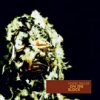 After a long wait with no signs of life of any kind, Vinny Miller isset to confound the world on his debut full-length for 4AD. Signed overfive years ago and with only one song released on a 4AD compilation,Miller is the label's longest signing without a record to speak of, andOn the Blockshows exactly why. Listening to the record, I got the overwhelmingsense of someone who is looking for the sound that defines him, movingin all directions at once, and wrestling with the whole process and thevoices in his head all at the same time. There are moments when, nodoubt in my mind, he's figured it out and he's created a song thatmoves and completely crushes the soul at the same time. There are alsomoments when he's lost the plot completely, and yet I think it'simportant to him that people hear those moments more than the others sothat he can grow as an artist. Either way, it is a genuinely confusingalbum with sketches of brilliance from time to time that hint at a muchgreater work that will obliterate us all. The album opens with arecording of Vinny calling into a radio program quiz show where notsaying yes or no is the key, and the DJ's reaction to speaking withhim. Then, seamlessly, the first true song begins in "Breaking Out ofYour Arms," and it's a stunner. Just Vinny and a guitar rend absoluteheartbreak from even the staunchest joy, and he even reaches a bit toprovide some histrionics that do not disappoint. His voice is a veryfragile one on most songs, due mostly, I think, to attempts to soar outof his range, but it suits the material perfectly. The pace continueson the mellow side, but then on "Pigpen," Vinny unleashes the darkside. It doesn't seem like it at first, but in the middle of the trackhe shifts immediately from pan effects and minimal percussion to allout burn. It's delicious, and even though it seems a bit schizophrenic,my whole body shook with the force in the speakers. The more bizarremoments ruin such a brilliant progression, however, with the vocalblends and grunts of "Cromagno," destroying the momentum just beforethe calm returns. And so it goes on, with highs then lows continuing towar for control with neither fully winning. The awkward starts andstops intermingled with the annoying side tracks that go nowhere blindthe wonder of it all, and thus I'm left with the feeling that this is afine debut, too long in the making due to the artist's confusion. I'mmore than inclined to give Vinny time, though, because the best momentsof this album eclipse entire catalogues of other bands.
After a long wait with no signs of life of any kind, Vinny Miller isset to confound the world on his debut full-length for 4AD. Signed overfive years ago and with only one song released on a 4AD compilation,Miller is the label's longest signing without a record to speak of, andOn the Blockshows exactly why. Listening to the record, I got the overwhelmingsense of someone who is looking for the sound that defines him, movingin all directions at once, and wrestling with the whole process and thevoices in his head all at the same time. There are moments when, nodoubt in my mind, he's figured it out and he's created a song thatmoves and completely crushes the soul at the same time. There are alsomoments when he's lost the plot completely, and yet I think it'simportant to him that people hear those moments more than the others sothat he can grow as an artist. Either way, it is a genuinely confusingalbum with sketches of brilliance from time to time that hint at a muchgreater work that will obliterate us all. The album opens with arecording of Vinny calling into a radio program quiz show where notsaying yes or no is the key, and the DJ's reaction to speaking withhim. Then, seamlessly, the first true song begins in "Breaking Out ofYour Arms," and it's a stunner. Just Vinny and a guitar rend absoluteheartbreak from even the staunchest joy, and he even reaches a bit toprovide some histrionics that do not disappoint. His voice is a veryfragile one on most songs, due mostly, I think, to attempts to soar outof his range, but it suits the material perfectly. The pace continueson the mellow side, but then on "Pigpen," Vinny unleashes the darkside. It doesn't seem like it at first, but in the middle of the trackhe shifts immediately from pan effects and minimal percussion to allout burn. It's delicious, and even though it seems a bit schizophrenic,my whole body shook with the force in the speakers. The more bizarremoments ruin such a brilliant progression, however, with the vocalblends and grunts of "Cromagno," destroying the momentum just beforethe calm returns. And so it goes on, with highs then lows continuing towar for control with neither fully winning. The awkward starts andstops intermingled with the annoying side tracks that go nowhere blindthe wonder of it all, and thus I'm left with the feeling that this is afine debut, too long in the making due to the artist's confusion. I'mmore than inclined to give Vinny time, though, because the best momentsof this album eclipse entire catalogues of other bands.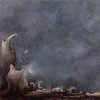 Eluvium's Matthew Cooper has eschewed the use of electronic and digitalmanipulation for his second album on Temporary Residence, preferringinstead to sit down a piano, turn the microphone on, and record thepure output of his fingers on the ebonies and ivories. What I came toenjoy most about last year's Lambent Material(a beautifully narcotic album) was the stark monotony of the tones.There was very little variation in a given song: piano restructured byway of electronics and effects. Each measure was laid out economicallyand in the perfect amount to satisfy the movement of the piece. Here,however, Eluvium produces an undiluted and more robust sound, full ofvirtuosic piano suites without any tampering on the end production. Thepace is slightly faster, the playing more frenetic (sounds simply slideinto each another), and the output is altogether a differentexperience. The sound is palpably lonely, as if you are peeking inunnoticed on a master at work alone is his studio, a painter engaged inthe first brush-strokes on a canvas. Likewise, Eluvium grants us accessto the very inner workings of his musical creations, isolating thesub-atomic particles of them. These particles are kinetic and lush andelegant in their spareness. The pensiveness is evident in every songregardless of length, be it only one-minute long ("An AccidentalMemory") or seven-minutes ("The Well-Meaning Professor"). Ironically, asong like "Nepenthe" is more lambent than anything on Lambent Material:notes flicker and collide, gliding up and down in arpeggios andcascades. It is not a long album; 27 minutes and suddenly the end hits.I feel as though I've been truly listening in on a daily practicesession (half an hour of piano playing squeezed in between a biologylab report and the Proust reading). Throughout my listenings of thisalbum, I could swear that I heard a telephone ringing, not in thebackground of the music, but somewhere in my apartment. I don't knowwhat aural resonance or vibrational frequency was causing thisphenomenon, and so it makes me think that someone, somewhere is tryingto get through to me. But I don't care. The music is still playing andI am a little transfixed by what I hear.
Eluvium's Matthew Cooper has eschewed the use of electronic and digitalmanipulation for his second album on Temporary Residence, preferringinstead to sit down a piano, turn the microphone on, and record thepure output of his fingers on the ebonies and ivories. What I came toenjoy most about last year's Lambent Material(a beautifully narcotic album) was the stark monotony of the tones.There was very little variation in a given song: piano restructured byway of electronics and effects. Each measure was laid out economicallyand in the perfect amount to satisfy the movement of the piece. Here,however, Eluvium produces an undiluted and more robust sound, full ofvirtuosic piano suites without any tampering on the end production. Thepace is slightly faster, the playing more frenetic (sounds simply slideinto each another), and the output is altogether a differentexperience. The sound is palpably lonely, as if you are peeking inunnoticed on a master at work alone is his studio, a painter engaged inthe first brush-strokes on a canvas. Likewise, Eluvium grants us accessto the very inner workings of his musical creations, isolating thesub-atomic particles of them. These particles are kinetic and lush andelegant in their spareness. The pensiveness is evident in every songregardless of length, be it only one-minute long ("An AccidentalMemory") or seven-minutes ("The Well-Meaning Professor"). Ironically, asong like "Nepenthe" is more lambent than anything on Lambent Material:notes flicker and collide, gliding up and down in arpeggios andcascades. It is not a long album; 27 minutes and suddenly the end hits.I feel as though I've been truly listening in on a daily practicesession (half an hour of piano playing squeezed in between a biologylab report and the Proust reading). Throughout my listenings of thisalbum, I could swear that I heard a telephone ringing, not in thebackground of the music, but somewhere in my apartment. I don't knowwhat aural resonance or vibrational frequency was causing thisphenomenon, and so it makes me think that someone, somewhere is tryingto get through to me. But I don't care. The music is still playing andI am a little transfixed by what I hear.  Chancing upon Basil Kirchin's previously unissued album Quantum: A Journey Through Sound in Two Partsreleased on Trunk last year was like stumbling onto a briefcase full oflarge, unmarked currency. The densely structured combinations oftime-stretched field recordings, jazz improvisations and tenseatmospherics had that dreamlike, dark, subconscious quality that I hadpreviously attributed only to 1980's underground cassette heroes likeRoger Doyle and HNAS. Technically, Kirchin's works could be describedas musique concrete, but his unorthodox, hallucinogenic collages ofsquawking geese, autistic children and backwards-tracked saxophonesolos seem well beyond the spectrum of academia to me. The Quantum release was one of my favorites of 2003, and it led me to seek out Basil Kirchin's amazing soundtrack to The Abominable Dr. Phibes and his pair of early-70's experimental masterpieces, both entitled Worlds Within Worlds. With Charcoal Sketches/States of Mind, Trunk continues their schedule of unearthing never-issued works by Kirchin. The Charcoal Sketchesof the title are three brief instrumental improvisations, overlaid withthe now-familiar recordings of birdsong, slowed and mutated to resemblethe bellowing hoots of a wounded gryphon. This material was recordedduring the nascent period before the Worlds sessions, and itdoesn't share the same furious and unpredictable fieriness of the otheralbums. The musicians appear to be playing off of the mutatedbirdcalls, cautiously weaving through a sparse work of gentle radiance.At times, the smooth funkiness of the guitar and bass, mixed with theotherworldliness of the fluttering whoops and chatters, reminded me ofthe soundtrack to Fantastic Planet grafted onto In a Silent Way-era Miles. States of Mindis considerably more disturbing, a collection of nine briefinstrumental sketches each meant to illustrate a different mentaldisorder. This music was used in the soundtrack for a short film shownonly once at an international conference of Psychiatrists held in 1968.The title of "Plaques and Tangles" refers to the brain degenerationcaused by Alzheimer's Disease. The track begins in a chaotic swell ofcompeting neuron fires, and eventually digresses into a dark fog ofconfusion. Frantic evocations of mania and paranoia are supplied byEvan Parker's frenzied saxophone solos. My only complaint is that themost of these tracks are far too brief and fragmentary, with not enoughtime given to fully develop the tantalizing themes. Consequently, it'snot nearly as immersive and powerful as Kirchin's other works. AlthoughI realize that this is inherent in the original sources from whichthese brief sketches are drawn, I hope that Kirchin chooses to revisitthis material at some future point and weave it into the kind ofmasterpiece I know he is capable of.
Chancing upon Basil Kirchin's previously unissued album Quantum: A Journey Through Sound in Two Partsreleased on Trunk last year was like stumbling onto a briefcase full oflarge, unmarked currency. The densely structured combinations oftime-stretched field recordings, jazz improvisations and tenseatmospherics had that dreamlike, dark, subconscious quality that I hadpreviously attributed only to 1980's underground cassette heroes likeRoger Doyle and HNAS. Technically, Kirchin's works could be describedas musique concrete, but his unorthodox, hallucinogenic collages ofsquawking geese, autistic children and backwards-tracked saxophonesolos seem well beyond the spectrum of academia to me. The Quantum release was one of my favorites of 2003, and it led me to seek out Basil Kirchin's amazing soundtrack to The Abominable Dr. Phibes and his pair of early-70's experimental masterpieces, both entitled Worlds Within Worlds. With Charcoal Sketches/States of Mind, Trunk continues their schedule of unearthing never-issued works by Kirchin. The Charcoal Sketchesof the title are three brief instrumental improvisations, overlaid withthe now-familiar recordings of birdsong, slowed and mutated to resemblethe bellowing hoots of a wounded gryphon. This material was recordedduring the nascent period before the Worlds sessions, and itdoesn't share the same furious and unpredictable fieriness of the otheralbums. The musicians appear to be playing off of the mutatedbirdcalls, cautiously weaving through a sparse work of gentle radiance.At times, the smooth funkiness of the guitar and bass, mixed with theotherworldliness of the fluttering whoops and chatters, reminded me ofthe soundtrack to Fantastic Planet grafted onto In a Silent Way-era Miles. States of Mindis considerably more disturbing, a collection of nine briefinstrumental sketches each meant to illustrate a different mentaldisorder. This music was used in the soundtrack for a short film shownonly once at an international conference of Psychiatrists held in 1968.The title of "Plaques and Tangles" refers to the brain degenerationcaused by Alzheimer's Disease. The track begins in a chaotic swell ofcompeting neuron fires, and eventually digresses into a dark fog ofconfusion. Frantic evocations of mania and paranoia are supplied byEvan Parker's frenzied saxophone solos. My only complaint is that themost of these tracks are far too brief and fragmentary, with not enoughtime given to fully develop the tantalizing themes. Consequently, it'snot nearly as immersive and powerful as Kirchin's other works. AlthoughI realize that this is inherent in the original sources from whichthese brief sketches are drawn, I hope that Kirchin chooses to revisitthis material at some future point and weave it into the kind ofmasterpiece I know he is capable of. 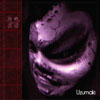 The music of David Y. Wang, who has releases on Bpitchcontrol,Tigerbeat6, and Violent Turd, suffers from a case of nostaglicschizophrenia with a touch of sentimental aural influenza, and as aresult some technique-obsessed modern day electronic music listenerswill undoubtedly have trouble with Uzumaki. Well fuck them.Fragmented sounds and fractured samples litter this short album likebeer bottles on a public beach in a way that reminds me of the good ol'days circa I Care Because You Do and Tango N Vectif.Whether intentional or not (as many patients are often unaware of theirillnesses), Mochipet has created a charming little retro IDM disc, withoccasional fits of childlike grumpiness mixed with carefreeplayfulness. "Labha" starts off almost innocuously like a symphonyorchestra tuning their instruments over a bed of subtle digital errors.Unable to restrain itself, it ultimately erupts into a hardcore technodrum assault, truly setting the tone for the rest of this dizzyingrelease. "Adosa" almost sounds like a tender love song or lullaby for aspecial someone with its clean guitar plucking, even with itsskittering sliced snares and cymbals. Of all the tracks on Uzumaki,"Alobha" stands out with a quirky melodies battling with one anotherover spastic beats that would make most breakcore producers blush likeschoolgirls. On the remix front, Schematic's poster boy Otto VonSchirach provides a typically unbalanced, uneven remix of the track"Polka Electronic Death Coutry," where hysterical samples,pitch-shifted soul hooks, and speed metal riffs and groans do battlefor control, ultimately leaving no clear winner and not offering much.Component artist Xyn, however, brings the album to a close with a farmore coherent reworking of "Doboro," offering up something akin to anupbeat version of Boards Of Canada, if you can imagine that.Considering how many IDM acts these days spend more time harping on theprocess than the melody (*cough* Autechre *cough* *cough* RichardDevine), I imagine many jaded electronic music listeners will get awell-deserved simple pleasure from the enjoyable sounds of Uzumaki.
The music of David Y. Wang, who has releases on Bpitchcontrol,Tigerbeat6, and Violent Turd, suffers from a case of nostaglicschizophrenia with a touch of sentimental aural influenza, and as aresult some technique-obsessed modern day electronic music listenerswill undoubtedly have trouble with Uzumaki. Well fuck them.Fragmented sounds and fractured samples litter this short album likebeer bottles on a public beach in a way that reminds me of the good ol'days circa I Care Because You Do and Tango N Vectif.Whether intentional or not (as many patients are often unaware of theirillnesses), Mochipet has created a charming little retro IDM disc, withoccasional fits of childlike grumpiness mixed with carefreeplayfulness. "Labha" starts off almost innocuously like a symphonyorchestra tuning their instruments over a bed of subtle digital errors.Unable to restrain itself, it ultimately erupts into a hardcore technodrum assault, truly setting the tone for the rest of this dizzyingrelease. "Adosa" almost sounds like a tender love song or lullaby for aspecial someone with its clean guitar plucking, even with itsskittering sliced snares and cymbals. Of all the tracks on Uzumaki,"Alobha" stands out with a quirky melodies battling with one anotherover spastic beats that would make most breakcore producers blush likeschoolgirls. On the remix front, Schematic's poster boy Otto VonSchirach provides a typically unbalanced, uneven remix of the track"Polka Electronic Death Coutry," where hysterical samples,pitch-shifted soul hooks, and speed metal riffs and groans do battlefor control, ultimately leaving no clear winner and not offering much.Component artist Xyn, however, brings the album to a close with a farmore coherent reworking of "Doboro," offering up something akin to anupbeat version of Boards Of Canada, if you can imagine that.Considering how many IDM acts these days spend more time harping on theprocess than the melody (*cough* Autechre *cough* *cough* RichardDevine), I imagine many jaded electronic music listeners will get awell-deserved simple pleasure from the enjoyable sounds of Uzumaki.
